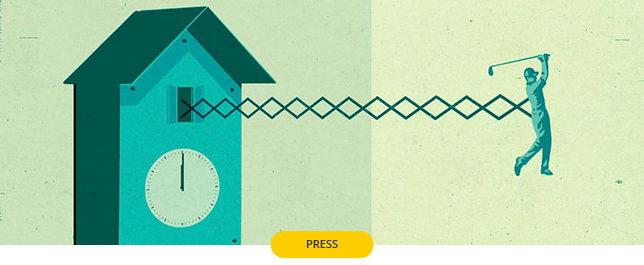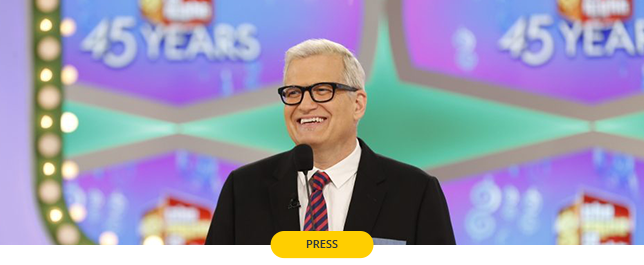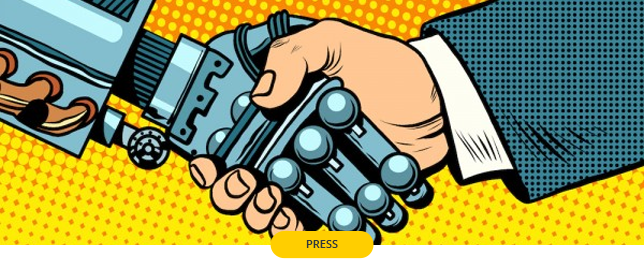 |
Faculty Newsletter |
 |
Happiness Studies by Cassie Mogilner Holmes Recognized by Association of Consumer Research |
|
The Association of Consumer Research, the preeminent society within the field of behavioral marketing, recognized UCLA Anderson Associate Professor of Marketing Cassie Mogilner Holmes with its 2016 Early Career Award.
Cassie Mogilner Holmes
|
 |
If They Google You, Do You Win? |
|
Over the past few years, Stuart Gabriel and Seth Stephens-Davidowitz have both become interested in how data from the internet, particularly Google searches, might be used to predict events. People also tell Google things — a lot of things — that they may not admit to others. So can we use Google searches to predict whom voters will support in this election? It is not as simple as the authors had hoped.
Stuart Gabriel
 |
 |
Before Retiring,
Take This Simple Test |
|
One of the most important financial decisions people make is when to retire. It's also one of the worst decisions many people make. Specifically, they retire too early, resulting in serious financial shortfalls in old age. The good news is that, according to a new study by Philipp Schreiber and Martin Weber at the University of Mannheim in Germany, there's a simple two-question quiz that can help predict whether you'll regret the timing of your own retirement.
Shlomo Benartzi
 |
 |
AT&T Buying HBO and CNN Owner Time Warner for $85.4 Billion |
|
UCLA Anderson economist William Wei-Choun Yu agreed that an expanded AT&T would merit antitrust scrutiny. “Antitrust might be a possible concern, but over the years we have seen some deals that went through without much resistance.”
William Yu
 |
 |
Drug Coupons Steer Consumers Away from Cheaper Generic Drugs |
|
Harvard Business School's Leemore Dafny teamed up with Kellogg School of Management professor Christopher Ody and UCLA Anderson School of Management professor Matt Schmitt to study consumers’ use of drug coupons from 2007 to 2010. Technically called “copay coupons,” the savings offered in drug coupons are covered not by the drug makers who are offering them but by the insurance companies. "While these coupons seem very basic or tame at first blush, it could contribute to higher pharmaceutical spending,” Schmitt told ConsumerAffairs.
Matt Schmitt
 |
 |
Why Your Phone May Be Making You a Worse Investor |
|
The problem is our aversion to losing money. Put simply, we care more about avoiding a loss than we do about locking in a gain. So if we are able to see nearly every little dip in our portfolio's value, however short lived, it can make us less willing to take on appropriate investment risk, according to research by Shlomo Benartzi, accounting professor and co-chair of the Behavioral Decision Making Group at UCLA Anderson School of Management.
Shlomo Benartzi
 |
 |
Research: Who’s Lobbying Congress on Climate Change |
|
Because lobbying data has been only recently made available electronically, there’s been little analysis of which firms are lobbying most and on what issue. Magali Delmas, Jinghui Lim and Nick Nairn-Birch examined Lobbying Disclosure Act data to see which firms lobby on climate change and how much they spend. They wanted to determine whether it’s true that only heavy greenhouse gas emitters (“brown” firms) lobby, or whether green firms (lower greenhouse gas emitters) are also active.
Magali Delmas
 |
 |
The Odds of a Three-Way Tie on The Price Is Right |
|
Here & Now’s Jeremy Hobson spoke with statistics professor Elisa Long, former Price Is Right contestant, who calculated the odds of players’ spinning a 3-way tie to win the Showcase Showdown.
Elisa Long
 |
 |
Technology Kills Diversification, Leaving Investors Exposed |
|
“We find a pronounced uptrend in integration within and among asset classes and countries over the period of the financial crisis and beyond, and hence a substantial decline in our diversification indexes,” John Cotter of University College Dublin, Stuart Gabriel of UCLA and Richard Roll of the California Institute of Technology wrote in a new study.
Stuart Gabriel
 |
 |
UCLA Anderson Dean Judy Olian Explains Why Artificial Intelligence Won't Replace CEOs |
|
For business school educators who believe the future will indeed need them, the expanding power of AI or deep learning poses a challenge and opportunity: How do we prepare students for the coming decades so that they embrace the power of AI, and understand its advantages for management and leadership in the future?
Judy Olian
  |
 |
Why Mongolia and North Dakota Aren’t Economic Miracles |
|
Much has been written on how countries can be cursed by an abundance of natural resources. What Jerry Nickelsburg saw in Mongolia confirmed that if the windfall gains from natural resources are not turned into the fundamental building blocks of a diversified economy, like education and infrastructure, the promise of mineral wealth will be squandered.
Jerry Nickelsburg
 |
 |
Los Angeles Builders Say New Affordable-Housing Rules Will Stifle Construction |
|
“It's already a lot of brain damage and work for a project to go through in L.A.,” said Paul Habibi, a professor at UCLA's Anderson School of Management who also develops and invests in apartments in the city. “It's really only going to stifle the number of housing units built.”
Paul Habibi
 |
 |
Values We Learn from Our Parents Influence Our Trust in Others with Money and Business |
|
Despite the undeniable importance of trust individually and societally, surprisingly little is known about the determinants of trusting behavior. While common sense dictates one determinant of trusting behavior must be our assessments of others' trustworthiness, little is known about what shapes “trust beliefs” or even whether they substantially drive trusting behavior.
Paola Giuliano
 |
| | | |